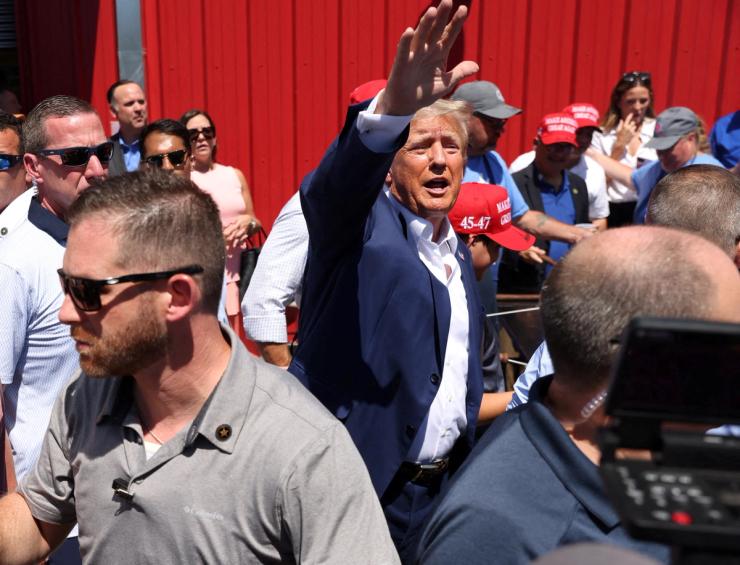The News
Donald Trump is expected to try to move his new criminal case in Georgia to federal court — a potential delay tactic that could complicate the trial. One of his co-defendants is already trying.
Less than 24 hours after he was indicted in the massive racketeering case, former White House Chief of Staff Mark Meadows filed to move his state charges to federal court. Ex-Assistant Attorney General Jeffrey Clark may follow suit.
SIGNALS
What's the motive for Trump to move his case? For one, it could theoretically put it in front of a more sympathetic judge (potentially one Trump himself appointed), and a jury selected from a wider, more politically friendly pool in metro Atlanta. State prosecutors would also be forced to try the case in an unfamiliar venue.• 1
The Atlantic, Don’t Let Donald Trump Take His Case to Federal Court
But even a failure to move his case could help Trump's cause: Because of the unprecedented nature of the case, this dispute has the potential to wind up at the Supreme Court, delaying the start of any potential trial.• 2 Per Georgia State University law professor Eric Segall, the fight could be “huge, messy, and time consuming.”• 3 The idea of a trial within six months, he said, is looking less and less likely.
The Atlanta Journal-Constitution, Will Georgia case against Trump end up in federal court?
The chances of Trump and the others scoring a “federal removal" hinges on whether a judge believe that the charges against them are related to their work as government officials, rather than actions taken in their personal capacity. That provision is "grounded in historical concerns that state officials might try to interfere with the work of the federal government," former U.S. Attorney Joyce Vance explained.• 4
Even if Trump's case is moved to federal court, he would still be facing state charges. That means that Trump or any other future president would not be able to pardon him, Lawfare's Anna Bowers explained. "It doesn’t mean that the charges are any different or that the prosecutorial team is any different."• 5



